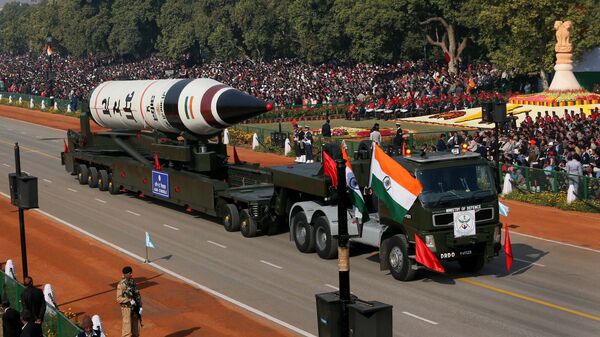Sources told Sputnik that the final trial of ‘Agni V' ballistic missile is scheduled for December 26 from the Abdul Kalam Island test facility off the eastern coast of India. The test series constituted three canister-based launches in January 2015. The flights were in open configuration and had validated the missile's parameters.
"The launch from a canister, integrated with a sophisticated launcher, was in a deliverable configuration that enables launch of the missile within a very short time as compared to an open launch. It also has advantages of higher reliability, longer shelf-life, less maintenance and enhanced mobility," said the Defense Research and Development Organization (DRDO).
Sources say that a high level team including the DRDO Chief and Directors of Advanced Systems Laboratory and Research Centre Imarat visited the trial site on Wednesday. After this canister based trial, the missile will enter into user trial.
The 17-meter, two-meter wide, three-stage solid-fueled missile is expected to boost India's nuclear deterrence capability. The 50-ton Agni V can carry a payload of 3,300 pounds and is capable of hitting targets over a distance of 5,500-5,800 kilometer. Its range can cover most parts of China, Europe and parts of Africa. Indian scientists have also been working on multiple independently targetable re-entry vehicles (MIRV) in order to ensure a credible second strike capability.




